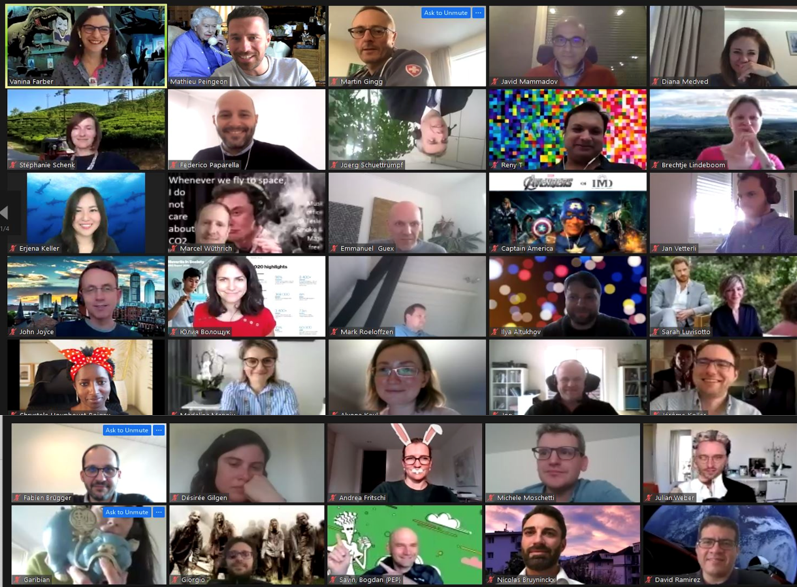
Challenging mindsets to inspire impact
In this interview, Professor Farber reflects on why there is a growing need to provide executives with the right tools to take a more integrated approach to impact and business – and to change mindsets when it comes to financial decision-making.
How can lab-engineered diamonds compete with the “real” thing? How can delivery companies embrace the circular economy to reduce packaging waste? How can a recycling start-up in the slums of Mexico change behaviors and create incentives to manage waste while simultaneously strengthening the local community?
These were just some of the questions posed by EMBA participants during the group project stage of Professor Farber’s Primer on Impact Investing and ESG Financial Integration.

After two weeks of exploring different models of impact investment and ESG integration, participants worked together to develop solutions for real world challenges faced by their respective companies. The proposals were then presented to, and judged by, young impact activists from around the world.
“I wanted to provoke participants to think differently – to get them out of their comfort zones,” Farber said. “I also wanted to give agency to these young activists. I wanted to put the voice and presence of the future generation into the class. I wanted to put their voice in a place of power.”
This innovative approach to fire-testing the EMBAs’ newly-acquired sustainable finance knowledge and tools with diverse perspectives ran through the core of the new module. Through its virtual delivery, more expert guest speakers were able to be involved in the course compared to traditional, in-person teaching formats.
“The IMD mission is to challenge what is and inspire what could be. How could we bring this mission into this program?” Farber asked. “My job was to orchestrate an inspiring and safe environment that introduced participants to innovative financial tools by challenging traditional answers, and then let them work their magic. Our participants are highly-experienced executives with varied fields of expertise in the real world. The course aimed at putting people together that can inspire each other’s changes in mindset and raise the ambitions of the projects.”

From left to right, Omnia El Omrani, associate at Women Leaders for Planetary Health and member of the United Nations Children’s Fund Youth Leaders Program and the Global Youth Coalition for Road Safety; Joshua Amponsem, founder of GreenAfrica Youth Organization (GAYO) and Youth Fellow at the Global Center on Adaptation (GCA); Georgio Toumieh, vice-President for External Affairs at the Lebanese Medical Students’ International Committee (LeMSIC); Pramisha Thapaliya, Policy Operations Co-lead of YOUNGO Agriculture Working Group, SDG 2 Interim Global Focal Point of UNMGCY (United Nations Major Group for Children and Youth) and Youth Ambassador of Real Food Systems; Ishaan Bakshi, Youth Ambassador for Real Food Systems; Lana Weidgenant, Vice-Chair of Action Track 2: Shifting to Sustainable Consumption Patterns at UN Food Systems Summit 2021.
Meeting demand
Demand continues to grow for more sustainable approaches to business and investment, fuelled by consumer, employee and investor appetites. Farber says hands-on courses that break down stereotypes and debunk the myths around impact are going to become a vital part of the executive education programs of the future.
“A lot of financial institutions are starting to engage with corporates to discuss business model transitions and ESG,” she said. “When corporates wanted to talk about impact, it was usually with NGOs or civil society, now it is with regulators and investors. These previously dichotomous worlds (impact and financial) are now colliding – and that creates the appetite for this kind of course.”
In addition, Farber noted, the COVID-19 pandemic has triggered personal reflection among business leaders on their role in society, which in turn has cast ESG and impact into the spotlight.
“This pandemic has made us all think about how we can do something from our own positions – it has created a renewed sense of urgency,” she said.
Having already taught a similar course at the MBA level, Farber saw the potential for changing mindsets and creating impact at a decision-making level within organizations through the EMBA program.
“What we wanted to do with this course was to encourage our EMBAs to think about how they can integrate impact into any decision-making – what are the new tools available to solve social and environmental challenges by bringing innovative market solutions at scale?” she said.
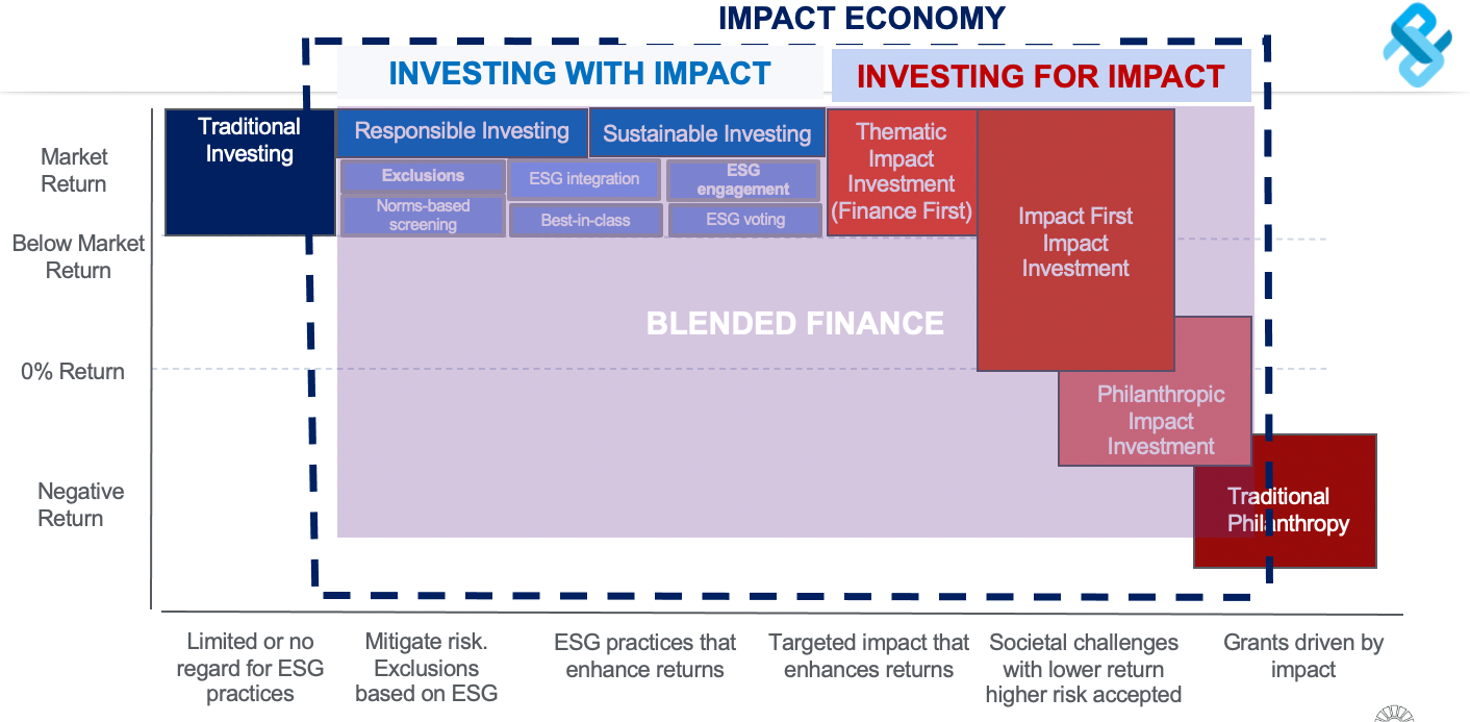
Exploring the social capital spectrum
For the first two weeks of the three-week module, EMBAs were walked through the range of options available to invest for impact through private market vehicles and invest with impact through public market vehicles. These insights were then applied to real world business or portfolio investment decisions, with the entire process supported by input, examples and advice from experts in each field.
“The idea was to help participants understand that there are innovative financial instruments that bridge traditional philanthropy and traditional investing. Between these two extremes is what we call the ‘impact economy’, which uses a range of players and instruments across the social capital spectrum,” Farber said.
While most EMBA modules focus on one specific topic of expertise, such as finance or marketing, Farber’s impact investing course was an opportunity to break down silos and explore the relationships between various disciplines through the lens of impact.
“A course like this allows you to put themes of leadership, finance, operations, corporate social responsibility and stakeholder engagement – these different lenses all in place,” she said.
“We always start with the problem and the impact you want to have in the world – a theory of change. From where we are to where we want to be, how do they build the transformation and transition in middle? In this course, we equip participants with the tools to kickstart the transformation process and drive meaningful change.”
Research Information & Knowledge Hub for additional information on IMD publications

Despite policy and market headwinds, the clean energy transition is accelerating. Here are five key insights business leaders need to know in 2025.

CFOs must drive a financially disciplined way to manage environmental and climate risk amid growing push back against sustainability efforts.
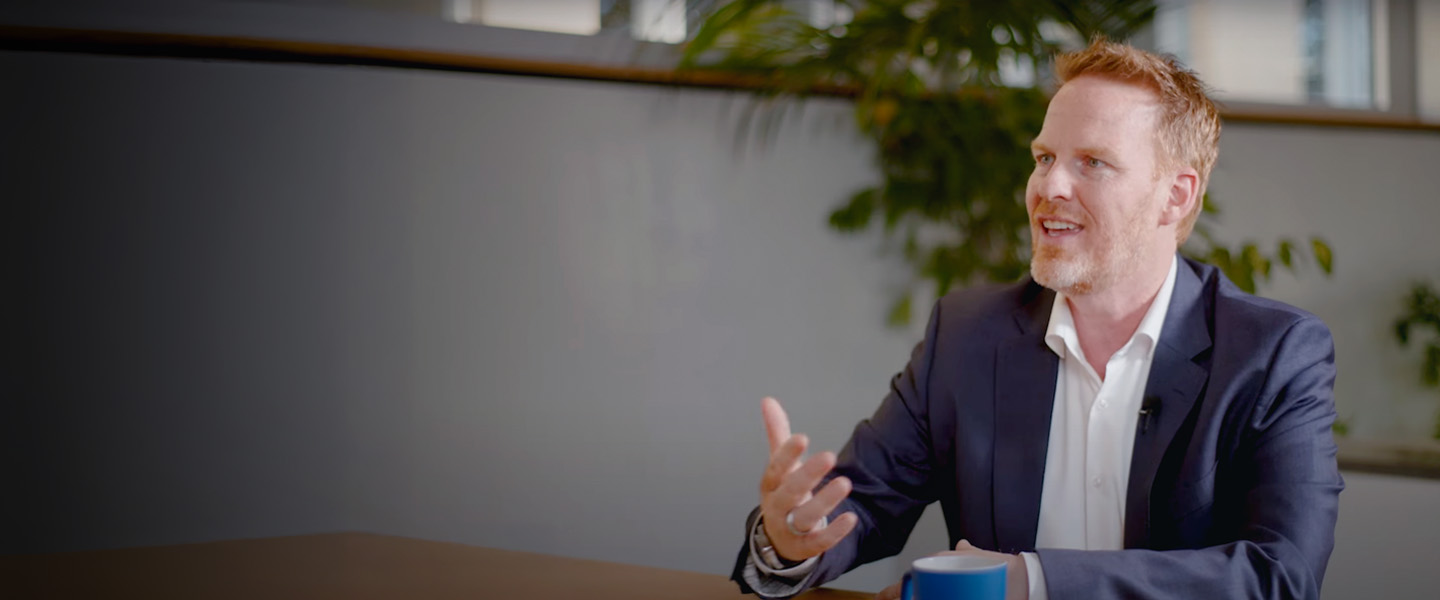
This episode takes you behind the scenes of a recent gathering led by the World Business Council for Sustainable Development together with IMD, where David Bach sat down with two sustainability leaders.

Discover four proven strategies for sustainable and efficient green transition. Split operations with ring fencing to fast-track your green goals.
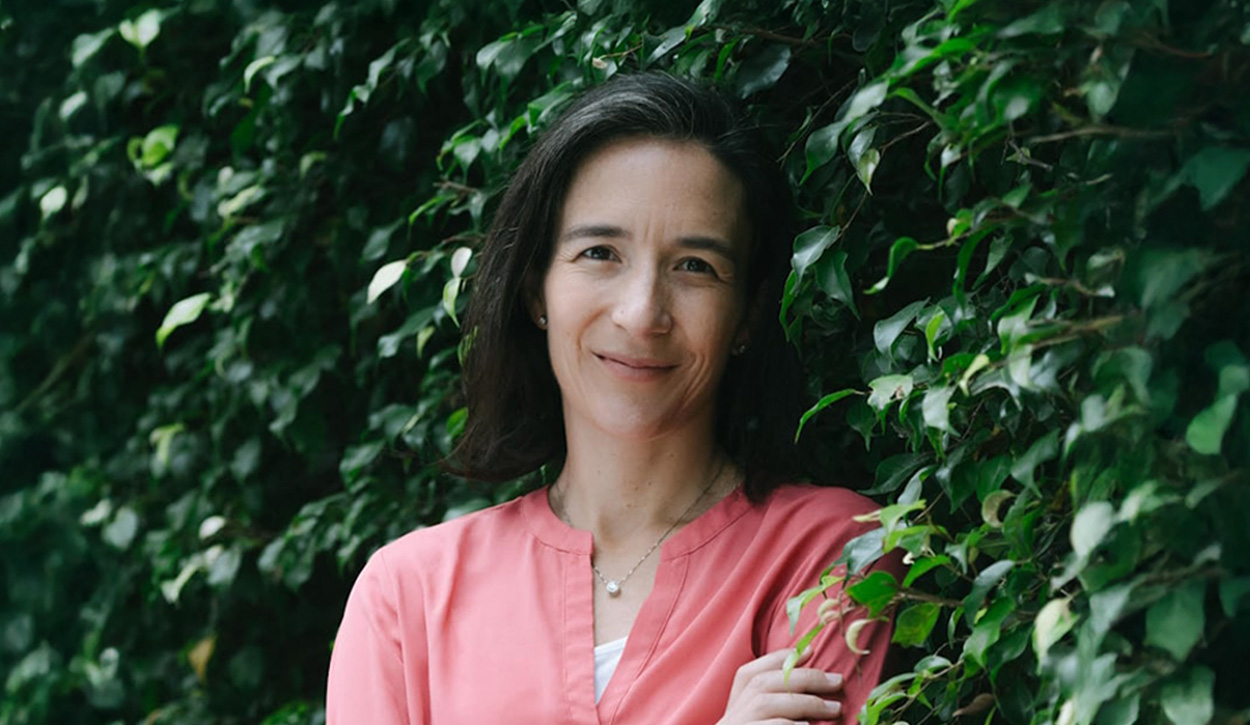
Join IMD Senior Researcher Adrian Dellecker and Mariana Sarmiento of Terrasos to explore business opportunities in voluntary biodiversity credits and environmental innovation.
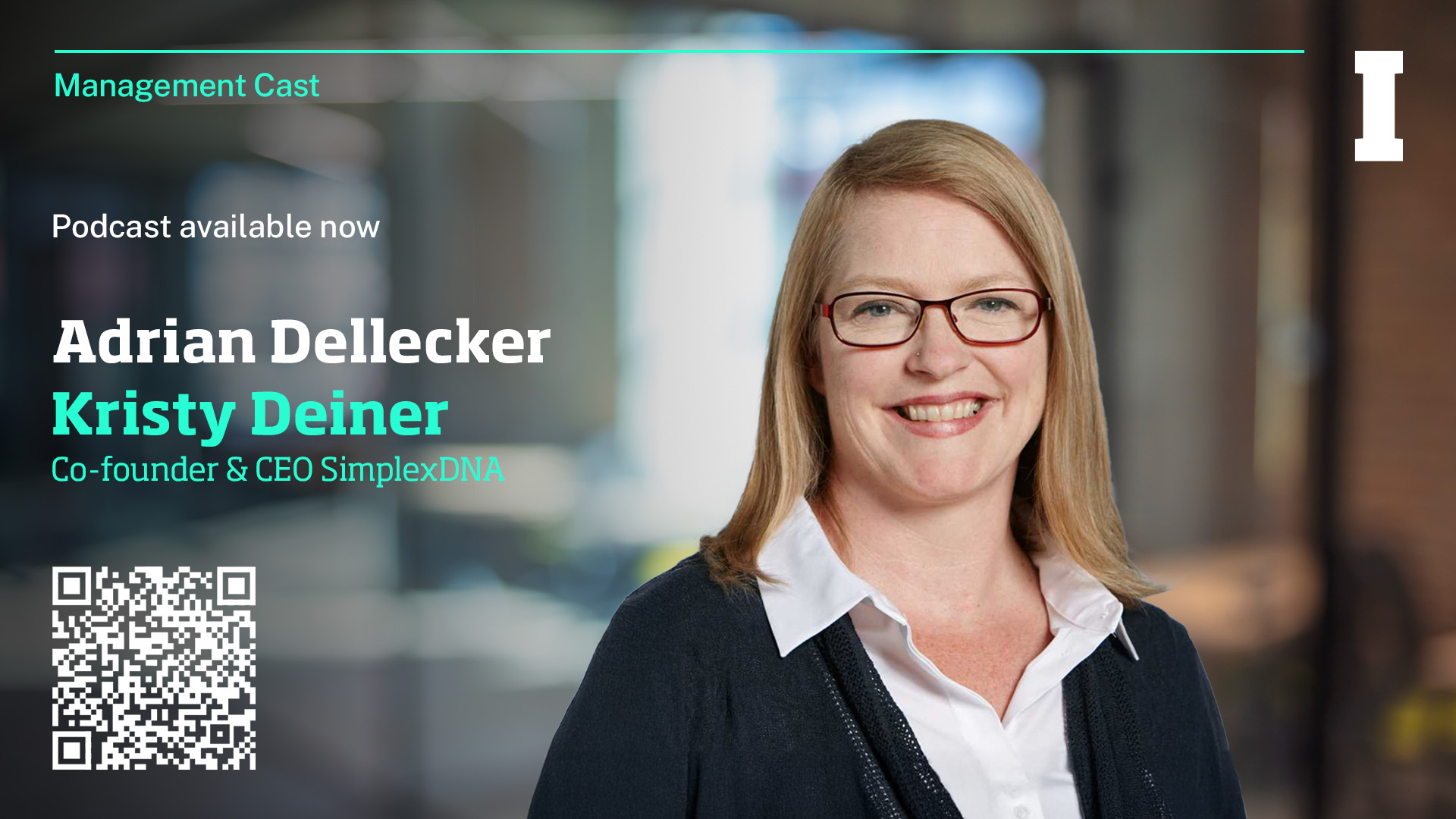
Explore eDNA science with Kristy Deiner on the IMD Management Cast . Learn how genetics, biodiversity, and data analytics shape conservation and the bioeconomy.

Subsidies of renewables has led to electricity prices frequently falling to less than zero leading to opportunities for consumers
The rapid expansion of generative artificial intelligence (GenAI) has delivered significant business advantages, like enhancing automation, efficiency, and decision-making capabilities across industries. However, these innovations come with enviro...

Once corporate activists, today’s CSOs are business integrators. 6 ways the CSO role is evolving: strategist, risk mitigator, innovator, regulator, storyteller, and leader.

AI is revolutionising industry by improving efficiency and driving sustainability. Discover how data-driven insights shape a greener future
in I by IMD
Research Information & Knowledge Hub for additional information on IMD publications
Research Information & Knowledge Hub for additional information on IMD publications
Research Information & Knowledge Hub for additional information on IMD publications
Research Information & Knowledge Hub for additional information on IMD publications
in I by IMD
Research Information & Knowledge Hub for additional information on IMD publications
in I by IMD
Research Information & Knowledge Hub for additional information on IMD publications
Research Information & Knowledge Hub for additional information on IMD publications
Research Information & Knowledge Hub for additional information on IMD publications
in I by IMD
Research Information & Knowledge Hub for additional information on IMD publications
in I by IMD
Research Information & Knowledge Hub for additional information on IMD publications

